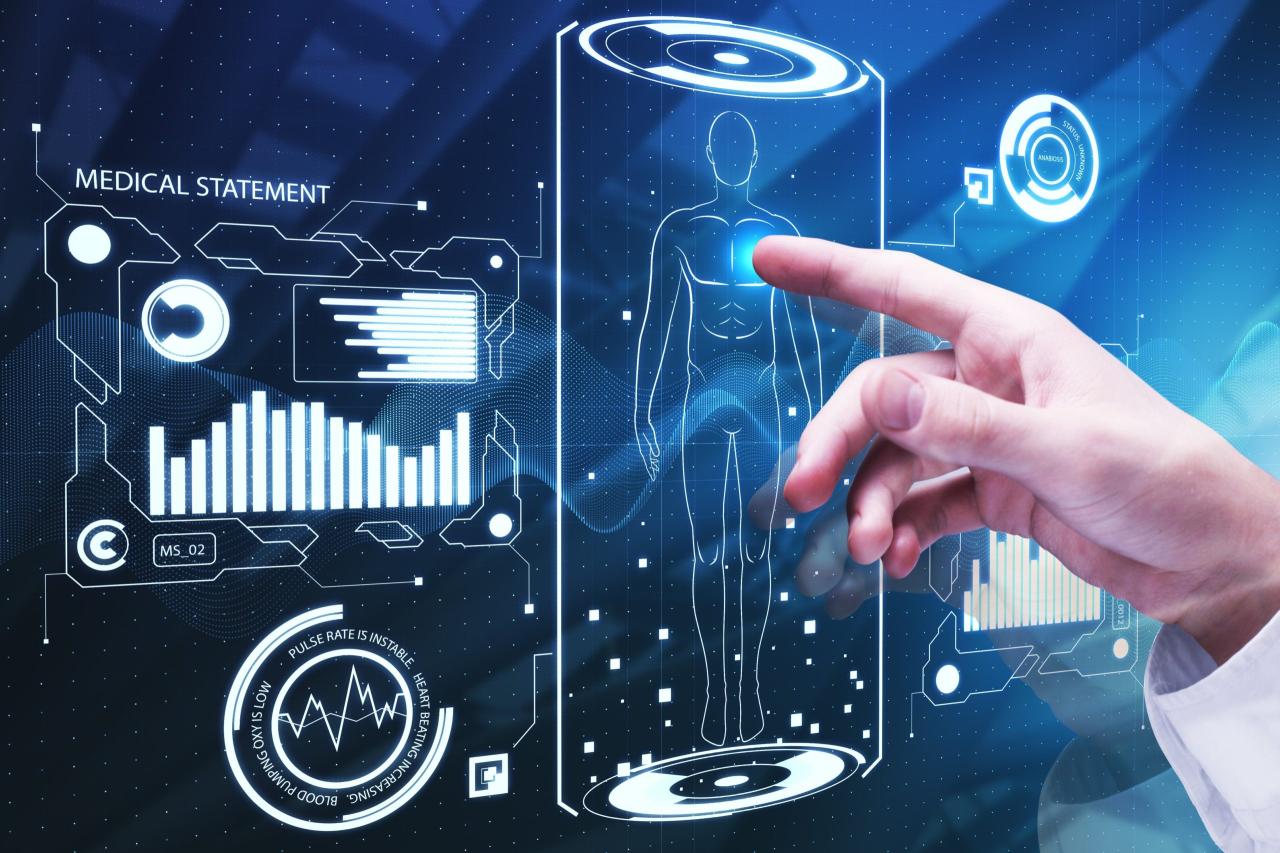

How Technology is Transforming the Healthcare Industry
The healthcare industry has witnessed a significant transformation in recent years, thanks to the rapid advancements in technology. From electronic health records to artificial intelligence, technology is revolutionizing the way healthcare services are delivered, received, and experienced. The impact of technology on healthcare is multifaceted, improving patient outcomes, reducing costs, and enhancing the overall efficiency of healthcare systems.
Electronic Health Records (EHRs)
One of the most significant technological advancements in healthcare is the adoption of Electronic Health Records (EHRs). EHRs are digital versions of patients’ medical records, which allow healthcare providers to access and update patient information easily and efficiently. EHRs have replaced traditional paper-based records, reducing errors, and improving the accuracy of medical records. With EHRs, healthcare providers can access a patient’s complete medical history, medications, test results, and treatment plans at the click of a button.
Telemedicine
Telemedicine, also known as telehealth, is another area where technology is transforming healthcare. Telemedicine allows patients to consult with healthcare providers remotely, using video conferencing technology. This has opened up new avenues for healthcare access, particularly for rural and underserved communities. Telemedicine has also reduced the need for hospital readmissions, urgent care visits, and has improved patient engagement and satisfaction.
Artificial Intelligence (AI) and Machine Learning
Artificial Intelligence (AI) and Machine Learning (ML) are being increasingly used in healthcare to analyze large amounts of data, diagnose diseases, and develop personalized treatment plans. AI-powered algorithms can process medical images, such as X-rays and MRIs, to detect abnormalities and diagnose diseases more accurately than human clinicians. ML algorithms can analyze patient data, such as medical history, genetic profiles, and lifestyle habits, to predict patient outcomes and develop personalized treatment plans.
Wearable Devices and Mobile Health (mHealth)
Wearable devices, such as fitness trackers and smartwatches, are becoming increasingly popular, allowing patients to track their health and fitness metrics in real-time. Mobile Health (mHealth) applications are also gaining traction, enabling patients to monitor their health, communicate with healthcare providers, and access healthcare services remotely. mHealth applications can also provide patients with personalized health advice, reminders, and alerts, empowering them to take charge of their health.
Robotics and Automation
Robotics and automation are being used in healthcare to improve surgical outcomes, reduce hospital-acquired infections, and enhance patient care. Robots are being used to assist surgeons during complex surgeries, improving accuracy and reducing recovery time. Automation is being used to streamline administrative tasks, such as billing and scheduling, freeing up healthcare providers to focus on patient care.
Big Data Analytics
Big Data Analytics is being used in healthcare to analyze large amounts of data, identify patterns, and gain insights into patient behavior, disease trends, and treatment outcomes. Big Data Analytics can help healthcare providers identify high-risk patients, predict disease outbreaks, and develop targeted interventions to improve healthcare outcomes.
Cybersecurity
As healthcare technology becomes more pervasive, cybersecurity threats are becoming a major concern. Healthcare organizations are vulnerable to cyberattacks, which can compromise patient data and disrupt healthcare services. It is essential for healthcare organizations to invest in robust cybersecurity measures, such as firewalls, encryption, and access controls, to protect patient data and ensure business continuity.
Benefits of Technology in Healthcare
The benefits of technology in healthcare are numerous and far-reaching. Some of the key benefits include:
- Improved patient outcomes: Technology enables healthcare providers to diagnose diseases more accurately, develop personalized treatment plans, and improve patient outcomes.
- Increased efficiency: Technology streamlines administrative tasks, reduces paperwork, and improves the efficiency of healthcare systems.
- Cost savings: Technology can reduce healthcare costs by reducing hospital readmissions, improving resource allocation, and enhancing patient engagement.
- Enhanced patient engagement: Technology empowers patients to take charge of their health, improving patient engagement and satisfaction.
- Better decision-making: Technology provides healthcare providers with access to real-time data, enabling them to make informed decisions and improve healthcare outcomes.
Challenges and Limitations
While technology has the potential to transform healthcare, there are several challenges and limitations that need to be addressed. Some of the key challenges include:
- Data interoperability: Healthcare systems often use different technology platforms, making it challenging to share patient data and ensure interoperability.
- Cybersecurity threats: Healthcare organizations are vulnerable to cyberattacks, which can compromise patient data and disrupt healthcare services.
- Regulatory frameworks: Healthcare regulations, such as HIPAA, can create barriers to the adoption of new technologies.
- Workforce training: Healthcare providers may require training to effectively use new technologies and integrate them into their workflow.
Conclusion
Technology is transforming the healthcare industry in profound ways, improving patient outcomes, reducing costs, and enhancing the overall efficiency of healthcare systems. From EHRs to AI, telemedicine to mHealth, technology is revolutionizing the way healthcare services are delivered, received, and experienced. While there are challenges and limitations to the adoption of technology in healthcare, the benefits are undeniable. As technology continues to evolve, it is essential for healthcare organizations to stay ahead of the curve, investing in new technologies and innovative solutions to improve healthcare outcomes and enhance patient care.




